It can be alarming if your split air conditioner frequently blows fuses. If you're wondering where to find the fuse in a split air conditioner, you're in luck. We researched this topic and shared our findings below.
A mini-split air conditioner has a fuse box or disconnect box where the fuse is located. The fuse can also be found next to the compressor in the outside unit.
The fuse serves as a safeguard against electrical damage to your air conditioner.
An electrical shock has the potential to permanently harm your air conditioner, cause property damage, and even result in fatalities.
Knowing where the fuse box is located on your split air conditioner is essential. Read on as we go into more detail regarding this topic and other related subjects.
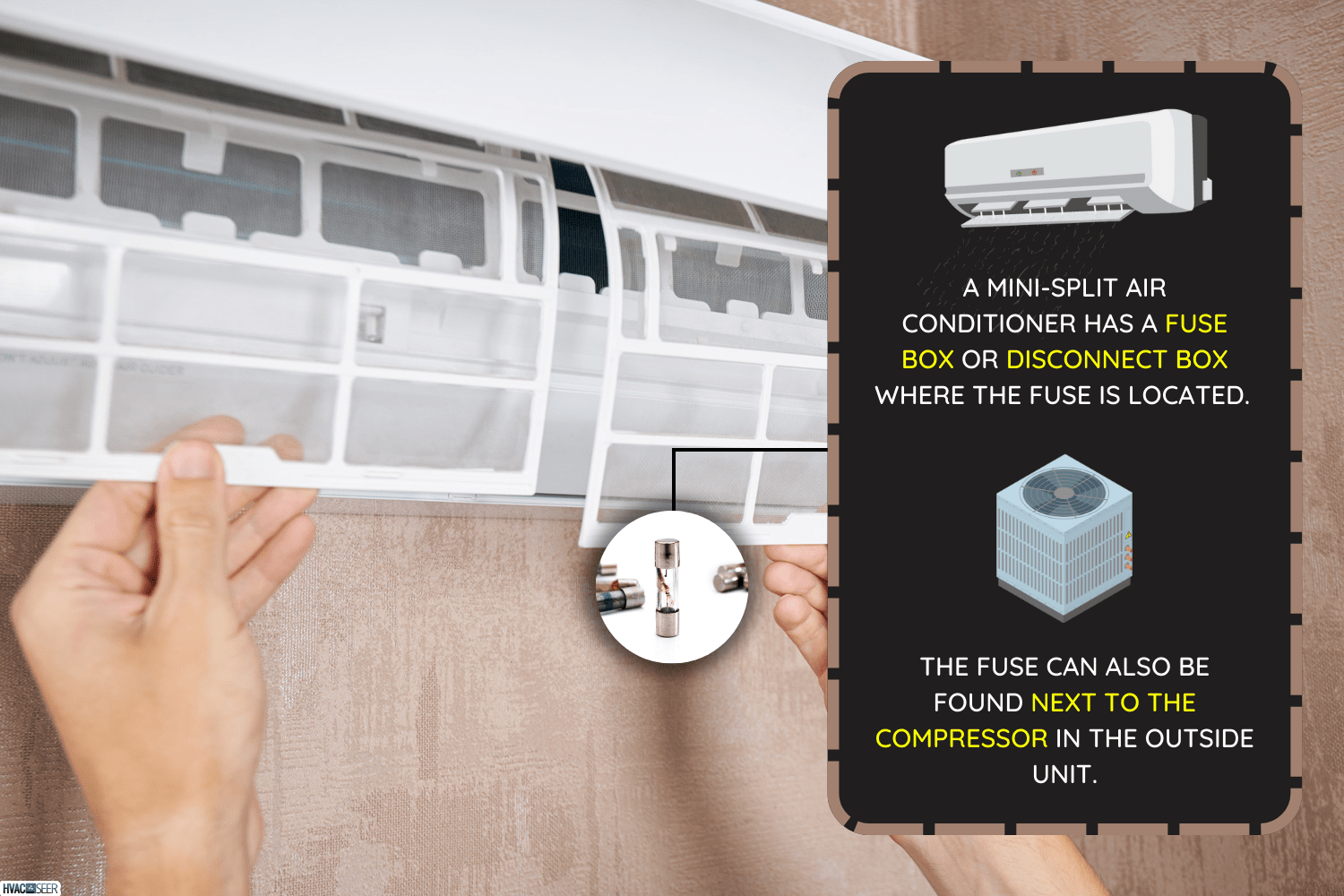
Where Is The Fuse In A Split Air Conditioner?
The fuse is a safety device to guard against electrical harm to your air conditioner. The fuse controls the power supply of a mini-split air conditioner.
The fuse is usually located in the disconnect box, which is attached to your air conditioner.
To perform repairs or standard maintenance on your mini-split, the technician will turn off the electricity at the fuse box.
What to Look for When Checking Your AC Fuses
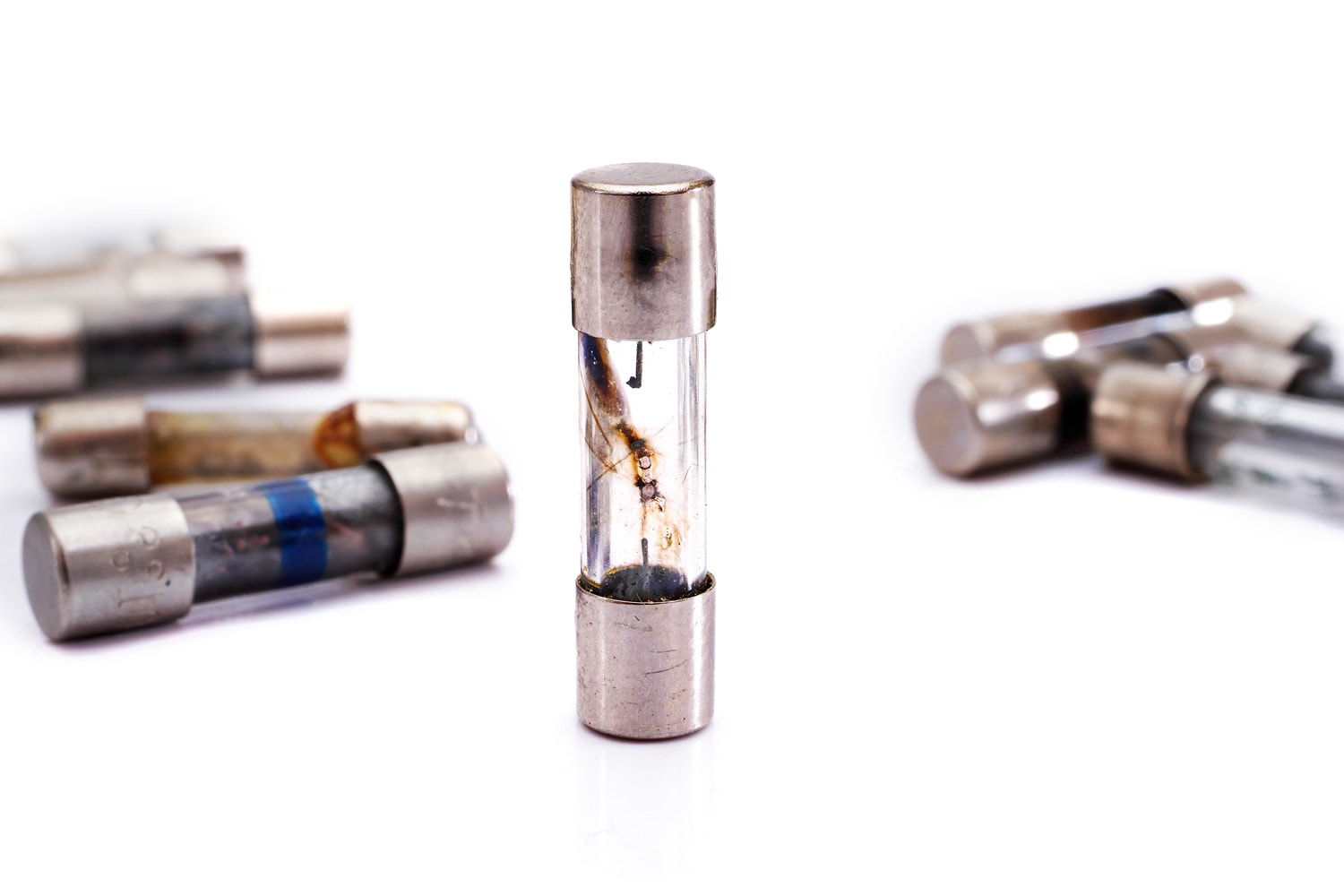
A blown fuse is a sign of an electrical issue. By having routine maintenance performed, you can identify the problem.
Fuse protection for air conditioners keeps the condenser from receiving too much current. Below is a guide on inspecting blown fuses once you know where the fuses for your air conditioner are located.
Here’s how to check if your fuses are blown:
AC Unit Not Turning On
When you turn on your air conditioner and nothing happens, you most likely have a blown fuse.
Your air conditioner's exterior unit will stop functioning immediately, and your device may not respond even though your thermostat keeps being hit with lower temperatures.
Your air conditioner may occasionally trip the breaker due to a blown or damaged fuse.
So, before your device can function, your system has to be turned off, and you have to replace the fuse to ensure it is safe.
Unusual Sounds Coming From Unit
In most cases, loud or odd noises from your air conditioner indicate the presence of loose parts, broken or missing isolation feet, refrigerant leakage, or a defective compressor.
However, the noise could also be an indication of a blown fuse. You may hear screeching or buzzing sounds.
The sounds are produced as the air conditioner keeps drawing power from the cables of the main power line.
Unusual Odors
You might notice a burning odor around the air conditioner. The smell suggests something has become too hot or burned in the electrical wiring.
This smell can also result from a blown fuse in the fan blower or circuit board of the air conditioner or because of a short circuit.
The smell should disappear, but be aware that a fire can occur if the odor strengthens.
Air Conditioner Malfunctioning
Also, you'll see that your air conditioner stops operating even though you've inspected the breaker and circuits and tried restarting the unit.
Loose or partially exposed cables might bring on a short that blows a fuse in your air conditioner or circuit box. Poor AC wiring or installation can lead to loose electrical connections, which will eventually cause the AC to malfunction.
You should immediately call a professional if your A/C is blowing fuses and malfunctioning due to unsecured wiring, as it poses a severe electrical threat.
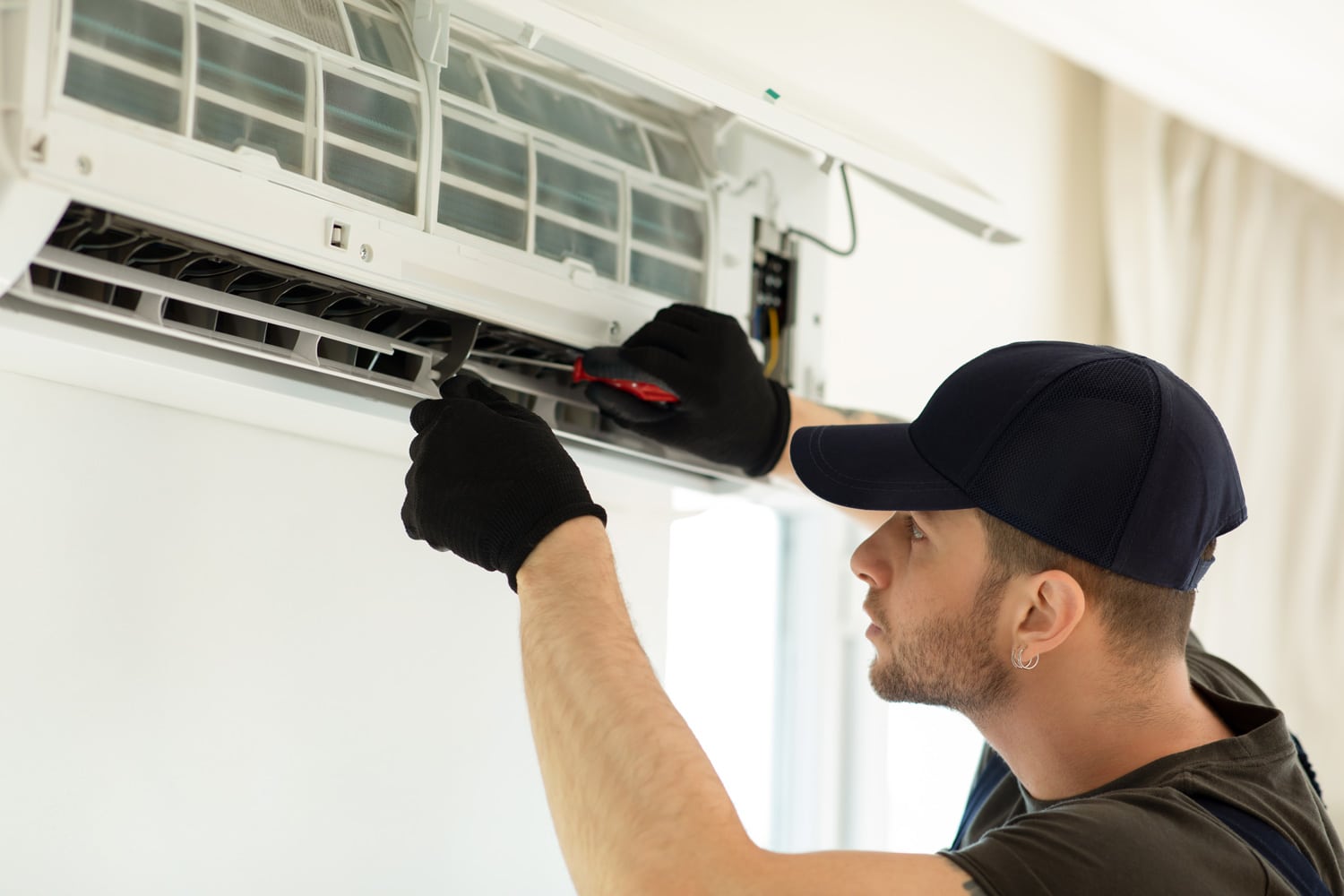
How to Replace Fuses on Your Air Conditioner
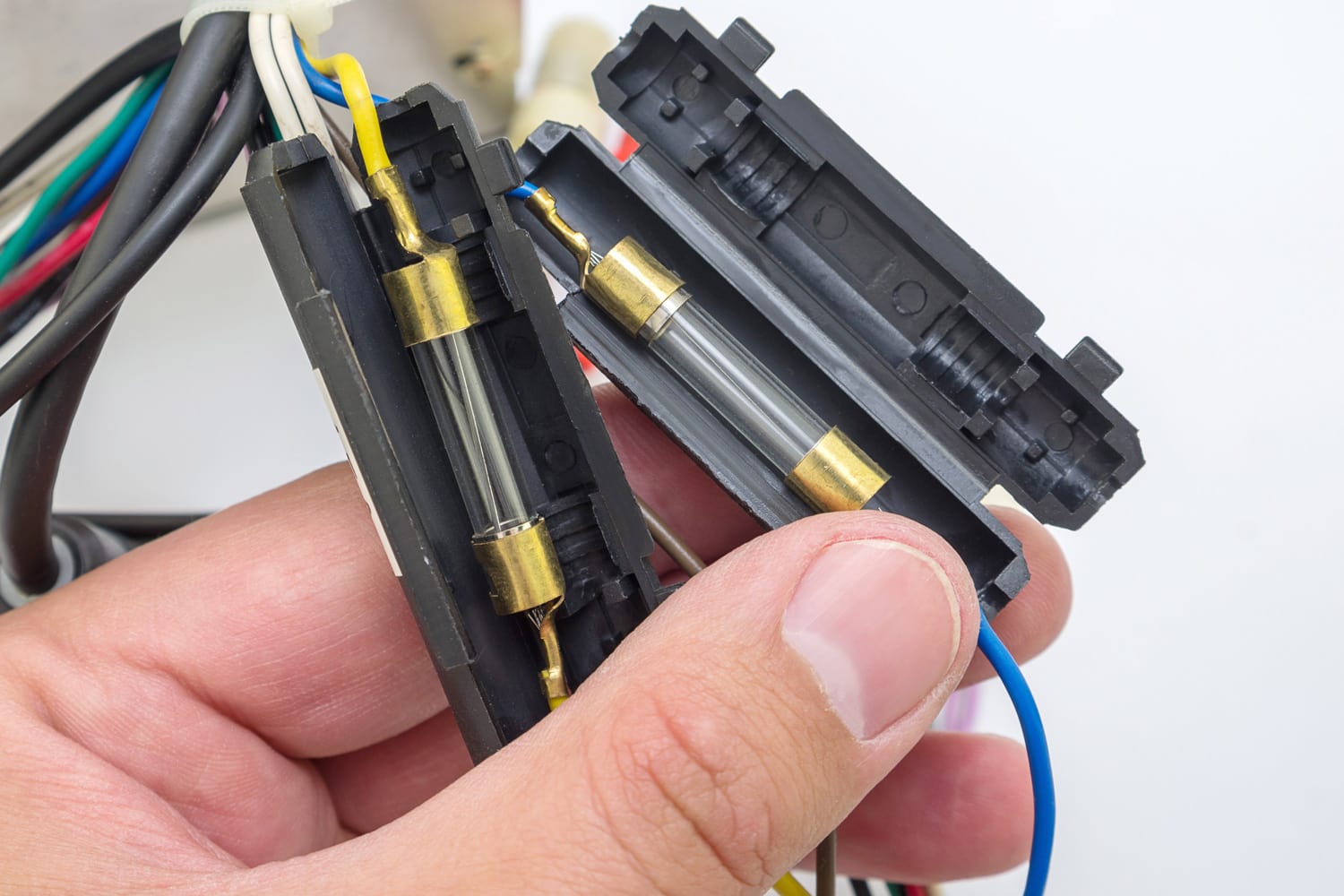
The maximum amperage that an A/C is rated for serves as the basis for the fuse's amperage handling capacity. Understanding what kind of fuse you'll replace is crucial before disassembling your air conditioner.
If an air conditioner is used excessively, especially during the hot summer, a fuse may easily blow.
To successfully replace a central air conditioner fuse, follow the instructions below:
Know Your AC
You need to know what type of fuse you will be replacing. You should first turn off the power to the air conditioning system. Then, you can find the switch next to your unit's compressor to check the fuses.
Test the Fuses
Open the door next to your compressor's switch. Two cartridge fuses with wires attached to both ends should be inside this door.
Using a voltage tester, test the voltage of the two wires coming from the disconnect switch, which is located above the fuses.
You can use your voltage meter to check both terminals and the bottom wires. After reviewing the cables, there should be no voltage present.
See this voltage tester on Amazon.
Remove the Fuses
To remove the fuses, use fuse pullers. Examine the amperage indicated on each. Additionally, confirm whether the fuses are regular, quick, or delay-rated. Buy a pair of fuses that are comparable to the ones you removed.
Test the New Fuses
Make sure to verify continuity with the new fuses. This will guarantee that the fuses in a typical, undamaged air conditioner will operate correctly.
Just so you know, only one fuse may need to be changed, but you should change the other for convenience.
Install the New Fuses
To insert the fresh set of fuses, use fuse pullers. The fuses must be set up correctly in their clamps. Your air conditioner won't function if the wires from the clamps aren't perfectly positioned on the fuse terminals.
Test the Air Conditioner
Turn on your unit's circuit breaker and the thermostat to see if you can replace your fuses properly. If the device does work well, your work is successful.
Why Would An AC Suddenly Stop Working?

When your air conditioner refuses to turn on, the problem might require an easy DIY fix. In some cases, the issue may need to be taken care of by a technician.
You want to avoid any issues that could damage your air conditioner. This begins with understanding the potential causes of your AC failing to cool your house.
Here are the common reasons your air conditioner might stop working:
Thermostat Malfunctioning
Older, dial-type thermostats may need to be correctly calibrated, preventing your air conditioner from receiving the proper commands from the control system.
A thermostat can be easily replaced or recalibrated to solve this issue.
It can be challenging to program new programmable thermostats, and they might be set incorrectly.
See this thermostat controller on Amazon.
Low on Refrigerant
Your air conditioner uses refrigerant to remove the heat and humidity from the air in your home. If your system experiences refrigerant line leaks, you might not have enough refrigerant to cool the air appropriately.
Changing the refrigerant is not enough to correctly resolve this air conditioner issue.
A technician will need to find the leaks and fix the holes in the lines. This can be a time-consuming and costly process, mainly when there are several leaks.
Signs of this problem include hissing or bubbling sounds and an accumulation of ice on the outdoor unit.
Clogged Air Filters
The filters ensure proper airflow. Your cooling system will need to work harder in this condition to maintain comfort in your home, and eventually, it can quit working.
The blower fan has to work harder to move air when the air filter is blocked with dust and debris.
The air conditioning system must work harder to cool the house when airflow is limited due to a clogged air filter.
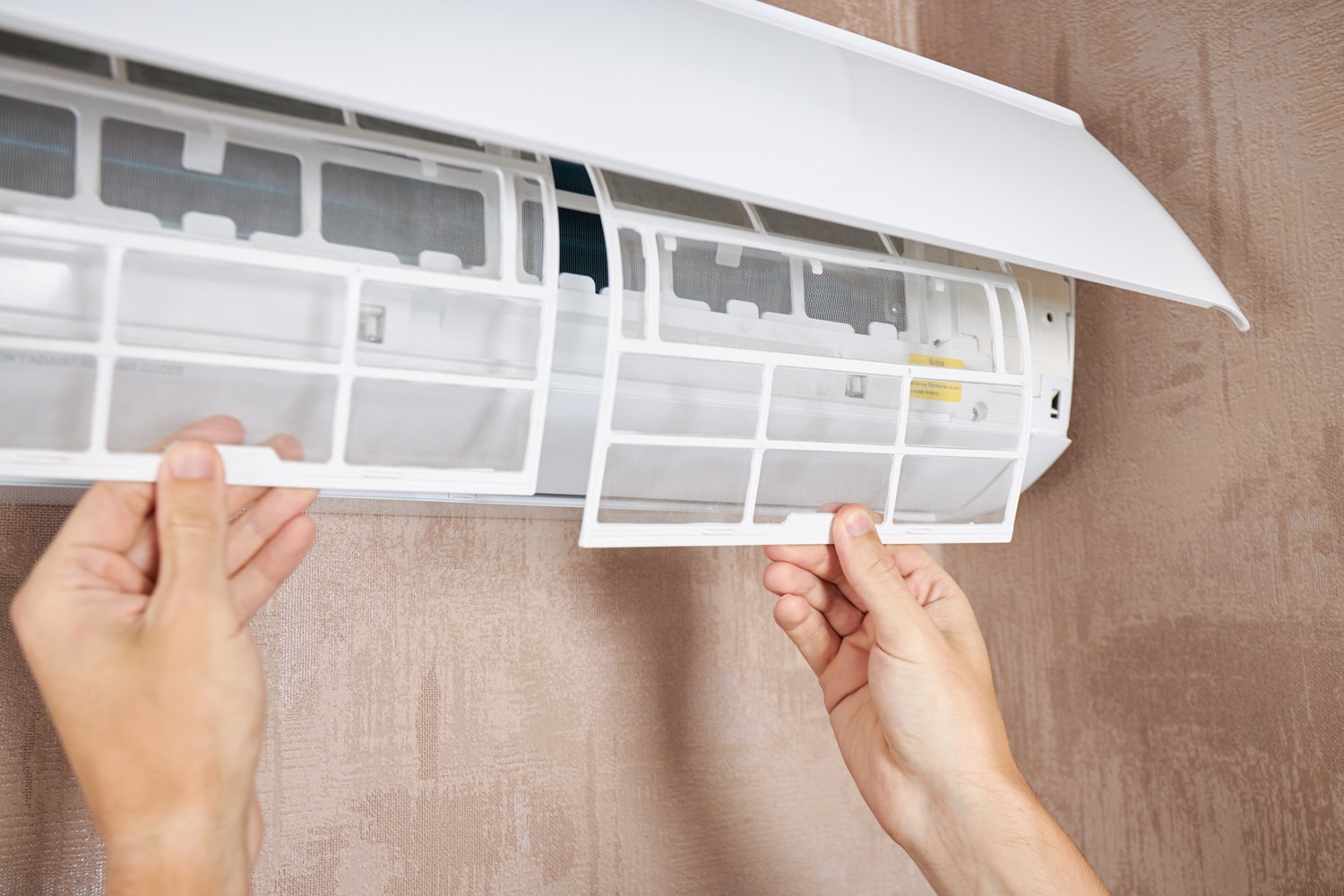
Dirty air filters can freeze your outdoor air conditioning unit and stop your system from operating.
Failed Capacitor
The capacitor in your air conditioner is probably worn out if your HVAC unit struggles to start, shuts off suddenly, or makes clicking noises from the outdoor unit.
The capacitor is a vital part of any AC unit. It is connected to the motor's circuit and gives the engine a shove to start functioning.
The capacitor is cut off from the circuit whenever the motor reaches a particular speed.
Dirty Condenser
Condenser coils in your exterior unit exhaust the heat that has been taken from the air outside. Your air conditioner may completely stop functioning if the condenser coil is unclean.
This can happen when soil-borne moisture forms and freezes while the air conditioner runs. This issue typically causes the unit to operate less efficiently, cool unevenly, and make odd noises.
As a result of the ice buildup, your home's air cannot be cooled since heat cannot be transferred.
When this occurs, heat transfer is inhibited, and the unit must work harder, increasing part wear and potentially resulting in system failure.
In Closing
The disconnect box is where you'll find the fuses for the air conditioner. To locate the AC fuses and check for any blown fuses, look through the access panel on the unit.
An AC fuse that has blown will look dirty and dingy. It might even be partially melted or otherwise deformed.
If you find this article informative, check out these related articles:
Where Is The Fuse On A Heat Pump [Inc? Payne, Carrier, Bryant & More]?




Thank you for providing such a helpful and informative article about the location of the fuse in a split air conditioner. As a homeowner, it’s important to have a basic understanding of the components and workings of your HVAC system, and this article makes it easy to locate and check the fuse if necessary. The step-by-step instructions and clear images are especially helpful. Overall, this article is a great resource for anyone looking to troubleshoot their split air conditioner and I appreciate the effort put into creating it.